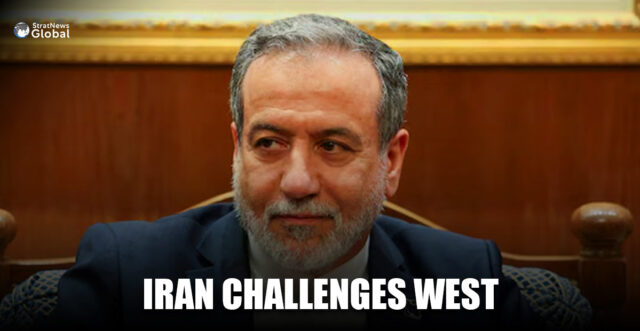Iran will not yield to threats or sanctions in the long-running nuclear standoff with the West, Foreign Minister Abbas Araqchi said on Monday.
Speaking to state television, he stressed that diplomacy remains the only viable solution, urging Britain, France, and Germany to choose “cooperation or confrontation” as they move to reimpose U.N. sanctions.
Britain, France and Germany, known as the E3, launched a 30-day process on August 28 to reimpose U.N. sanctions, accusing Tehran of failing to abide by a 2015 deal with world powers aimed at preventing it from developing a nuclear weapon.
Araqchi said he will meet with his European counterparts and the head of the U.N. nuclear watchdog chief Rafael Grossi in New York this week on the sidelines of the U.N. General Assembly to discuss Iran’s nuclear program.
Two European diplomats told Reuters the meeting will be on Tuesday.
“They have tested Iran repeatedly and know we do not respond to the language of pressure and threat,” Araqchi said. “I hope we can find a diplomatic solution in the coming days, otherwise Tehran will take appropriate measures.”
The European powers have offered to delay reinstating sanctions for up to six months – to give diplomacy a chance – if Iran restores access for U.N. nuclear inspectors to its nuclear sites, addresses concerns about its stock of enriched uranium and resumes talks with the United States.
But amid the looming threat of sanctions, two European diplomats said Iran’s clerical rulers have so far failed to meet the conditions set by the E3.
“The ball is in Iran’s camp. It is up to it to quickly take the concrete steps in the coming days to avert snapback. If not then sanctions will be reimposed,” said one of the diplomats.
If Tehran and the E3 fail to reach a deal on an extension by the end of September 27, then all U.N. sanctions will be reimposed on Iran where the economy already struggles with crippling sanctions reimposed since 2018 after President Donald Trump ditched the pact during his first term.
Iranian President Masoud Pezeshkian said on Saturday that Iran would overcome any reimposition of U.N. sanctions, but one insider said mounting discontent among many Iranians at the state of the economy was rattling the Islamic Republic, with little sign that its leaders have the answers.
Soon after the U.S. and Israeli attacks on Iranian nuclear sites in June, Iran’s parliament passed a law suspending cooperation with the International Atomic Energy Agency and stipulating that any inspections must be approved by Iran’s Supreme National Security Council.
On September 9, the IAEA and Tehran reached a deal to resume inspections at nuclear sites.
“I am in New York to use these remaining days for diplomatic consultations that might lead to a solution … if it is not found, we will continue our path,” Araqchi said.
(With inputs from Reuters)





